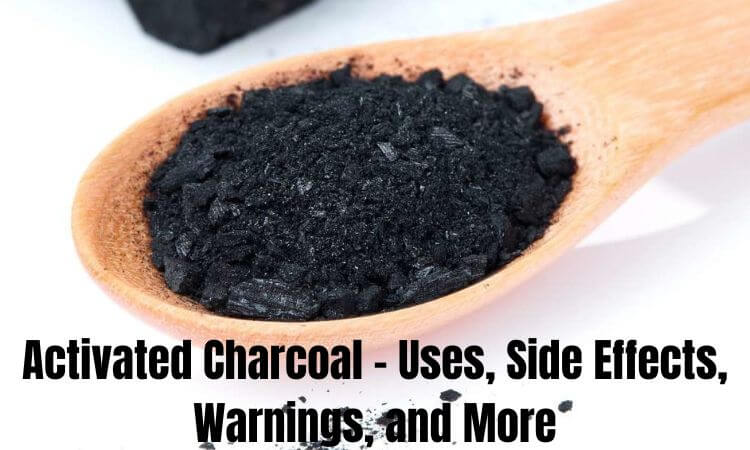Table of Contents
Activated Charcoal – Uses, Side Effects, Warnings, and More
activated charcoal benefits,where to buy activated charcoal,activated charcoal uses,activated charcoal tablets,activated charcoal dose,side effects of activated charcoal,activated charcoal powder,activated charcoal for stomach,activated charcoal benefits,activated charcoal uses, activated charcoal powder,activated charcoal dose,where to buy activated charcoal,activated charcoal tablets
Overview
Because it contains pores, activated charcoal can be used to absorb chemicals. In most cases, it is administered orally as a therapy for poisons that have been consumed. There is scant evidence to support the usage of this for other purposes.
Peat, coal, wood, coconut shells, and petroleum can all be used in the production of charcoal. Charcoal is heated in the presence of a gas, which results in the production of activated charcoal. This process results in the charcoal developing a significant number of internal spaces, often known as pores. Because of these pores, activated charcoal is effective at absorbing chemicals.
In the treatment of poisoning, activated charcoal is frequently utilized. It is also used for excessive cholesterol, hangovers, and stomach trouble, but the majority of these uses are not supported by strong scientific data.
What Are the Benefits and Applications?
Possibility of Being Effective as a Poison. It is possible to reverse the effects of poisoning by taking activated charcoal orally, where it will bind to medicines and other types of substances. Along with other traditional antidotes and treatments for poisoning, it should only be used under the supervision of a qualified medical professional.
There is a growing interest in using activated charcoal for a variety of additional applications; however, there is insufficient trustworthy data to determine whether or not this could be beneficial.
DO NOT MISS: Colloidal Silver – Uses, Side Effects, Warnings, and More
Adverse Reactions
When used for only a short period of time, activated charcoal is most likely safe to consume orally. Consuming activated charcoal over an extended period of time may not pose any health risks. Constipation and dark stools are among the most often experienced adverse effects.
When it comes to wound treatment, activated charcoal is likely to be risk-free for the majority of individuals when it is used topically.
Important Safety Instructions and Cautionary Notes
When consumed via the oral route: When used for only a short period of time, activated charcoal is probably safe to consume. Consuming activated charcoal over an extended period of time may not pose any health risks. Constipation and dark stools are among the most often experienced adverse effects.
When it comes to wound treatment, activated charcoal is likely to be risk-free for the majority of individuals when it is used topically. Activated charcoal may be safe to use during pregnancy and breastfeeding if only used for a limited amount of time throughout either of these life stages. Before beginning to use it, you should discuss it with your primary care physician.
Obstruction of the gastrointestinal tract (GI) or a sluggish passage of food through the intestines: If you have any form of intestinal blockage, activated charcoal is not the treatment for you. In addition, before using activated charcoal, you should consult a healthcare practitioner if you have a condition that hinders the movement of food through the intestines.
What are the interactions?
Take precautions when using these two together.
Ethanol, which is a component of alcohol, reacts with activated charcoal.
Consuming activated charcoal along with alcohol may reduce the effectiveness of the activated charcoal’s ability to block the absorption of toxins.
Oral medications, sometimes known as “Oral medicines,” have the potential to interact with activated charcoal.
The number of medicines and other compounds that are absorbed by the stomach and intestines can be decreased by using activated charcoal. Consuming activated charcoal in conjunction with orally administered medication may result in a reduction in the amount of the medication that is absorbed by the body. Because of this, the effects of your prescription may become less noticeable. To avoid the adverse effects of this interaction, activated charcoal should be consumed at least an hour after orally taking the drug.
Ipecac syrup has an effect on activated charcoal thanks to its interaction with it.
YOU MAY LIKE THIS: Gabapentin – Uses, Side Effects, Warnings, and More
In the stomach, activated charcoal has the ability to bind syrup of ipecac. The effects of the ipecac syrup are diminished as a result.
Contraceptive medicines, including birth control pills, have been shown to interact with activated charcoal.
The digestive tract and the stomach both absorb less of some chemicals when activated charcoal is present. Taking birth control pills in conjunction with activated charcoal may cause a reduction in the amount of the birth control pills that are absorbed by the body. The effectiveness of birth control pills may be diminished as a result. Consuming activated charcoal at least three hours after or twelve hours before taking birth control tablets will prevent this interaction from occurring.
Dosing
Activated charcoal is becoming more commonplace as a black food colour that is used in foods.
Activated charcoal has traditionally been taken as a single oral dose of one hundred grammes, under the direction of a qualified medical practitioner, in order to treat medical conditions. It is also utilised in the creation of wound dressings. Talk to a medical professional about your symptoms to find out what kind of treatment and dosage would work best for your particular problem.



